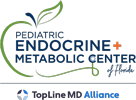The journey of pregnancy is often marked by joy and anticipation, but for some families, it becomes a complex landscape when faced with genetic disorders. Patau Syndrome, also known as Trisomy 13, is one such condition that warrants a deeper understanding.
In this comprehensive exploration, we at PEMC of Florida delve into the intricacies of Patau Syndrome, shedding light on what Trisomy 13 entails, the role of chromosome 13, and the evolving landscape of treatments for genetic disorders, including Patau Syndrome.
What is Trisomy 13?
Trisomy 13 is a chromosomal abnormality characterized by the presence of an extra copy of chromosome 13 in every cell of the body. Typically, each cell in the human body contains 23 pairs of chromosomes, including one pair of chromosome 13. However, in individuals with Trisomy 13, there are three copies of chromosome 13 instead of the usual two.
Chromosome 13: A Closer Look
Chromosome 13 is one of the 23 pairs of chromosomes that carry the genetic blueprint for human development. It plays a crucial role in determining various aspects of physical and intellectual development. Trisomy 13 occurs when an error in cell division leads to the presence of an additional copy of chromosome 13, resulting in a total of three copies.
The extra genetic material can lead to a wide range of developmental issues, impacting multiple organ systems and functions. It is essential to recognize that Trisomy 13 is a random occurrence and is not typically inherited from parents. The risk of Trisomy 13 increases with maternal age, but it can occur in pregnancies of women of any age.
Patau Syndrome: Clinical Manifestations
Patau Syndrome is associated with a myriad of physical and intellectual challenges. The clinical manifestations can vary widely, and affected individuals may exhibit:
- Cleft Lip and Palate: Facial abnormalities, including cleft lip and palate, are common features of Patau Syndrome.
- Cardiac Abnormalities: Congenital heart defects are prevalent in individuals with Trisomy 13 and often require surgical intervention.
- Intellectual Disabilities: Cognitive impairment is a hallmark of Patau Syndrome, affecting the intellectual development of the affected individual.
- Physical Anomalies: Physical abnormalities, such as extra fingers or toes (polydactyly), are observed in many cases.
- Organ Malformations: Malformations of internal organs, including the brain, kidneys, and gastrointestinal tract, are common in individuals with Patau Syndrome.
Patau Syndrome Treatments: Navigating a Complex Landscape
Currently, there is no cure for Patau Syndrome, and treatments primarily focus on managing the symptoms and improving the overall quality of life for affected individuals. The approach to treatment is often multidisciplinary, involving a team of healthcare professionals, including geneticists, pediatricians, cardiologists, and developmental specialists.
Medical Interventions
Depending on the severity of the cardiac abnormalities, surgical interventions may be necessary to address congenital heart defects. These interventions aim to enhance the functionality of the heart and improve overall cardiovascular health.
Early Intervention Programs
Early intervention services, such as physical therapy, speech therapy, and occupational therapy, play a crucial role in supporting the developmental needs of individuals with Patau Syndrome. These programs are designed to optimize physical and cognitive development from an early age.
Palliative Care
Given the complexity of Patau Syndrome and the range of challenges it presents, palliative care plays a significant role in enhancing the quality of life for affected individuals. Palliative care focuses on symptom management, pain relief, and emotional support for both the individual and their families.
Patau Syndrome: A Family-Centered Approach
Navigating the Emotional Landscape
The journey of a family facing a Patau Syndrome diagnosis is a profound and emotionally intricate experience. Embracing a family-centered approach to care recognizes the emotional dimensions that come with this challenging situation. Families are confronted with a spectrum of emotions ranging from shock and grief to resilience and hope. It is crucial for healthcare professionals to provide a supportive environment that allows families to express and navigate these emotions.
Emotional Support Services
Engaging with emotional support services becomes a cornerstone of the family-centered approach. Counseling services, led by professionals experienced in genetic disorders, can offer a safe space for parents and family members to share their fears, hopes, and uncertainties. These services provide a platform for emotional expression, helping families process the challenges associated with Patau Syndrome and fostering a sense of unity and understanding.
Peer Support Groups
Connecting with other families facing similar journeys can be immensely beneficial. Peer support groups create a community where experiences can be shared and valuable insights exchanged. These groups often become a source of comfort, encouragement, and practical advice. Knowing that others have traversed similar paths can provide a sense of solidarity, assuring families that they are not alone in their journey.
Addressing Psychological Impacts
The psychological impact of a Patau Syndrome diagnosis extends beyond the initial stages of shock and grief. Families often grapple with ongoing concerns, such as adapting to the needs of a child with complex medical conditions and managing the long-term implications of Trisomy 13.
Educational Resources
Equipping families with accurate and accessible information is vital. Educational resources tailored to the specific needs of families dealing with Patau Syndrome provide a foundation for understanding the condition, its progression, and the available support systems. Clear, concise information empowers families to make informed decisions and actively participate in the care and advocacy of their children.
Psychological Counseling
Ongoing psychological counseling is a crucial component of the family-centered approach. Professionals specializing in pediatric psychology can assist families in developing coping strategies, resilience, and adaptive mechanisms. This proactive approach to mental health aims to enhance the overall well-being of family members as they navigate the complexities associated with raising a child with Patau Syndrome.
Social Aspects of Care
Recognizing the social aspects of caring for a child with Patau Syndrome emphasizes the importance of a holistic approach to family-centered care. Social dynamics, including interactions with extended family, friends, and the broader community, play a significant role in shaping the support network available to the family.
Community Engagement
Encouraging community engagement helps break down barriers and misconceptions surrounding genetic disorders. Education and awareness initiatives can foster an inclusive community that understands the unique challenges faced by families dealing with Patau Syndrome. This increased understanding contributes to a supportive environment, reducing stigma and promoting empathy.
Advocacy and Support Networks
Empowering families to become advocates for their children and others with Patau Syndrome is a key aspect of the family-centered approach. Building support networks that extend beyond the immediate family involves collaborating with advocacy organizations, local healthcare providers, and educational institutions. These networks serve as pillars of support, amplifying the family’s voice and facilitating access to resources and services.
Summary
Patau Syndrome, or Trisomy 13, presents a complex genetic landscape that necessitates a nuanced understanding. Through exploring the genetics of chromosome 13 and the clinical manifestations of Patau Syndrome, we gain insight into the challenges faced by affected individuals and their families. The evolving landscape of treatments, encompassing medical interventions, early intervention programs, and palliative care, highlights the importance of a multidisciplinary and family-centered approach to care. In the midst of the medical complexities, it is crucial to recognize the resilience and strength of families affected by Patau Syndrome, emphasizing the need for ongoing support and advocacy in the realm of genetic disorders.


